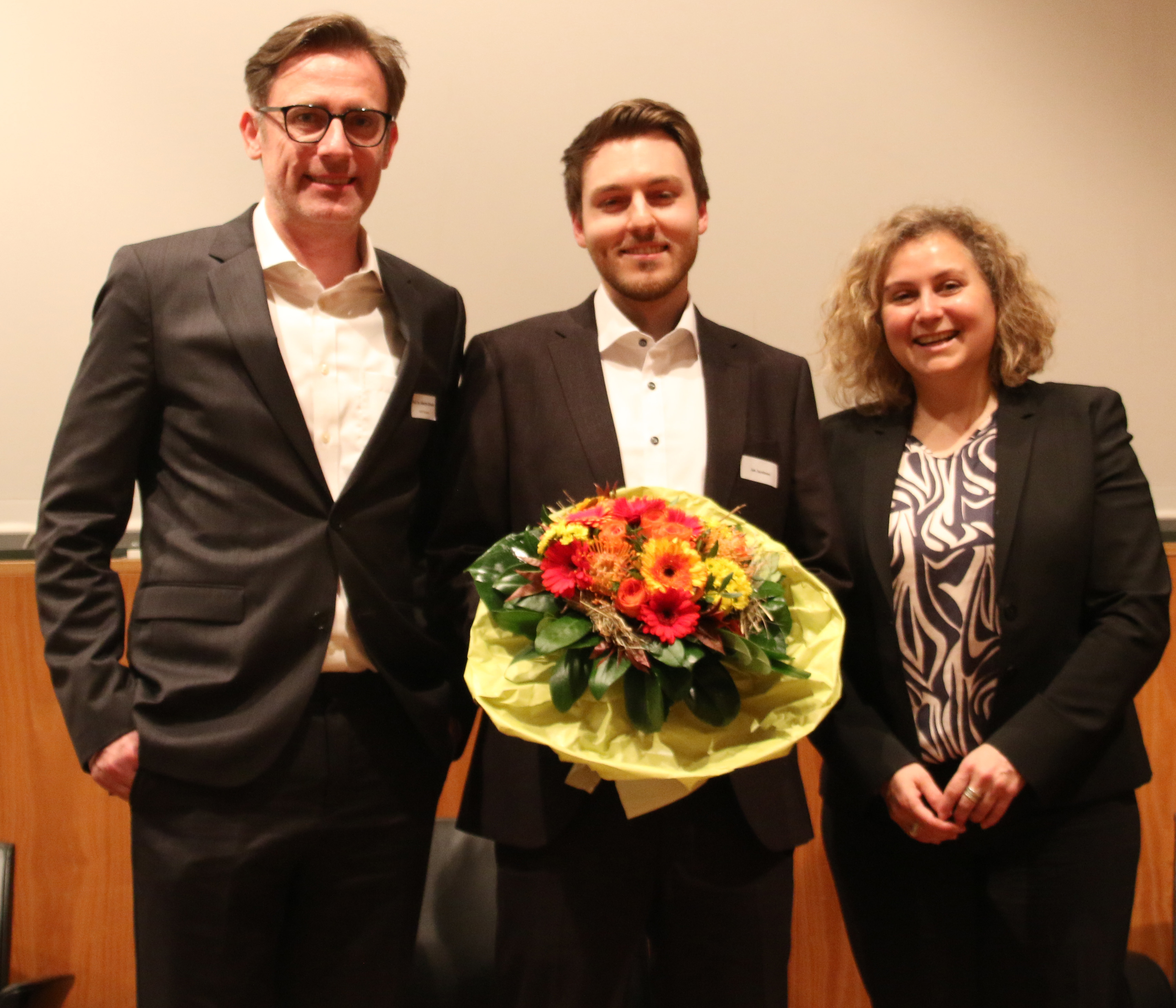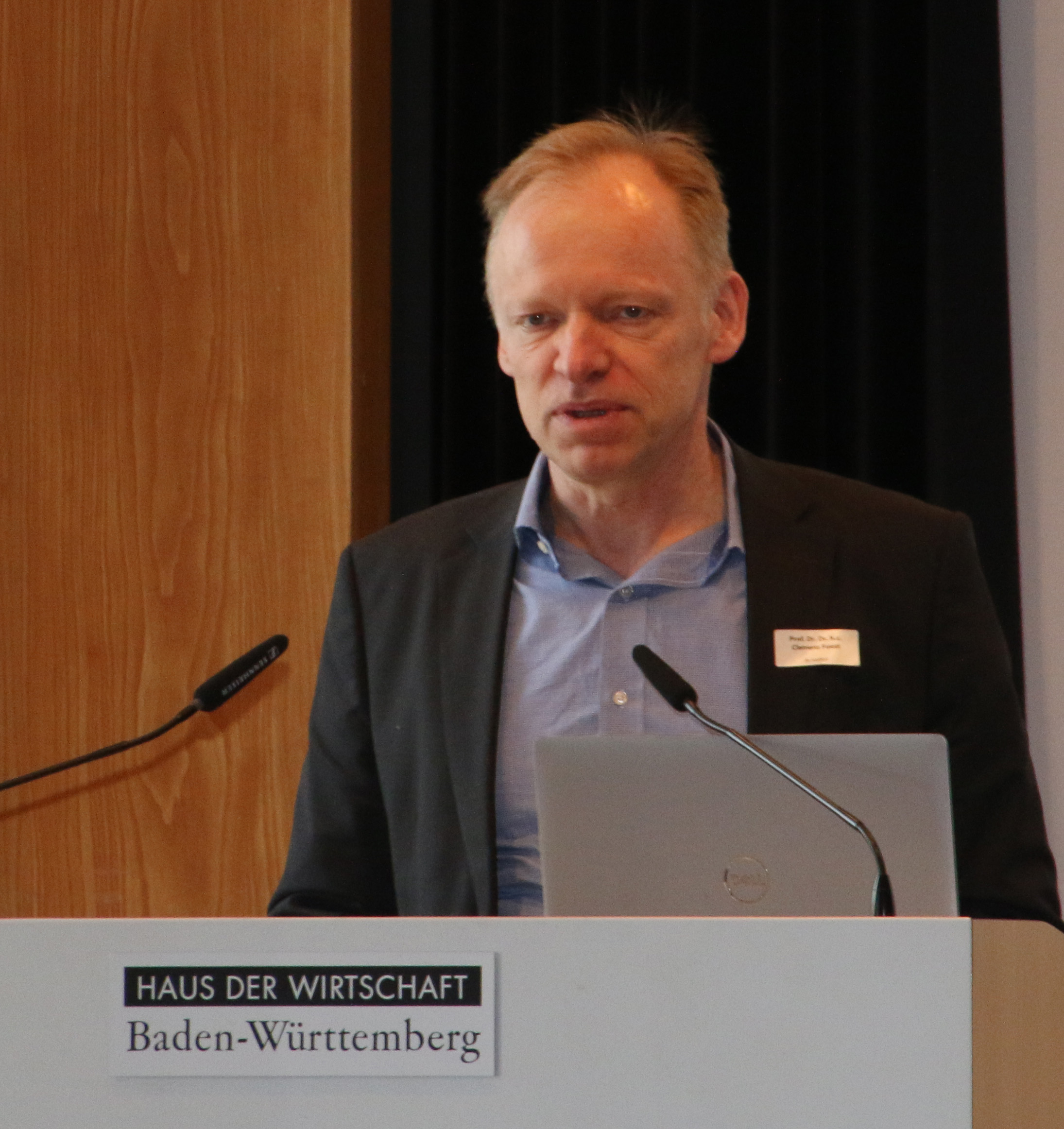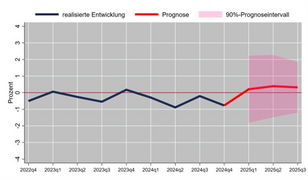Award of the Norbert Kloten Prize for Applied Economic Research 2025 to:
Mr Jan Jacobsen, M.Sc. for his Master's thesis Do Finfluencers Give Good Investment Advice? A large-scale, LLMpowered Analysis of the Profitability of Investment Recommendations on YouTube. Supervisor: Professor Dr Dominik Papies, Chair of Marketing at the Faculty of Economics and Social Sciences at the Eberhard Karls University of Tübingen.

Photo: Deutsche Bundesbank
From left to right: Prof Dr Martin Biewen, Director of the IAW, Jan Jacobsen and Dr Patricia Staab, President of the Head Office of the Deutsche Bundesbank in Baden-Württemberg.
Lecture
Germany in international tax competition (in German).

Photo: Deutsche Bundesbank
Professor Dr Dr h.c. Clemens Fuest (Professor of Economics at the Ludwig Maximilian University of Munich and President of the ifo Institute).
Panel discussion

Photo: Deutsche Bundesbank
- Raoul Didier, Head of the Tax Policy Department at DGB
- Professor Dr Dr h.c. Clemens Fuest, President of the ifo Institute
- Dr Tobias Hentze, Head of the Thematic Cluster State, Taxes, Social Security at IW Köln
- Julia Jirmann, Tax Policy Officer of the Tax Justice Network
- Moderation: Johannes Pennekamp (FAZ)





